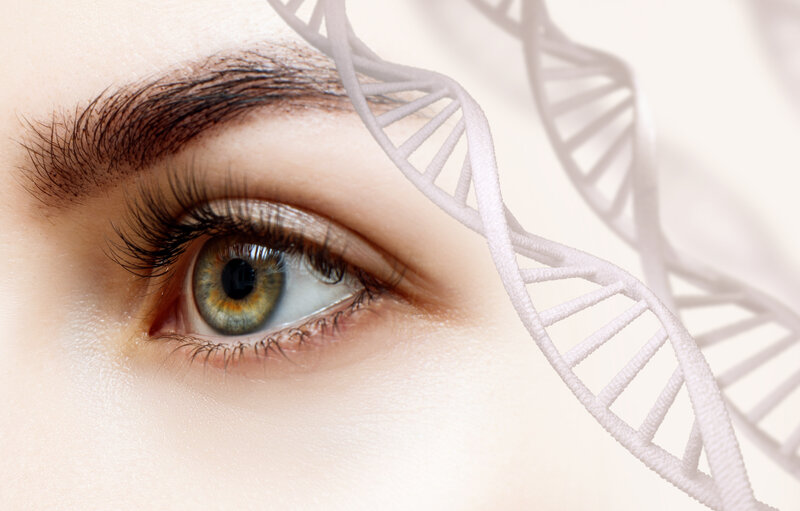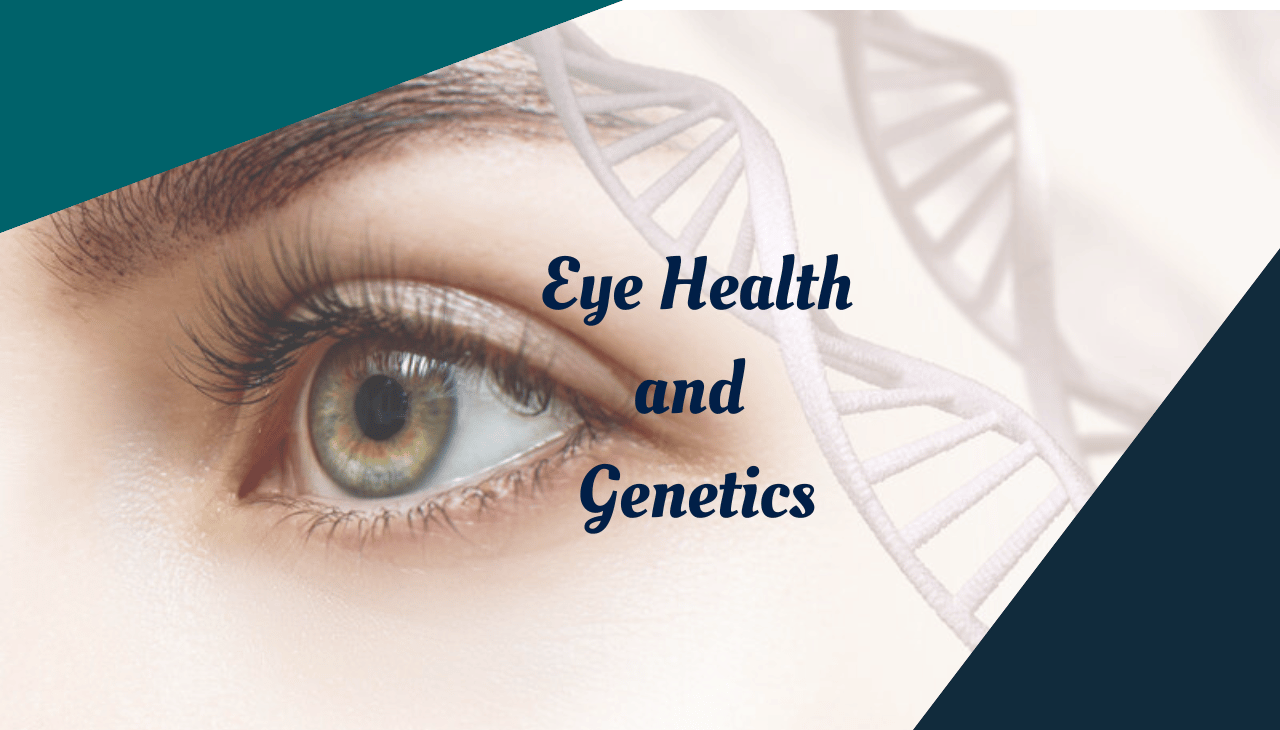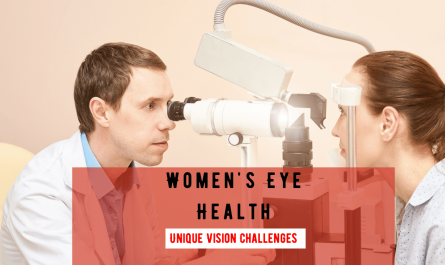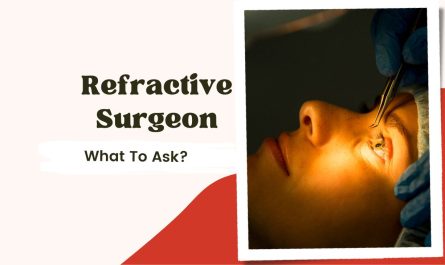Our eyes are essential to our daily lives, yet we often take them for granted until problems arise. While many eye conditions are related to aging, environmental factors, or lifestyle choices, genetics also plays a significant role in determining our eye health. Understanding the genetic connection to eye health can empower individuals to take proactive measures in maintaining their vision. In this blog, we will explore the link between genetics and eye health, how genetic factors influence various eye conditions, and what steps you can take to safeguard your eyesight.
The Role of Genetics in Eye Health

Genetics and Eye Conditions: A Natural Link
Our genetic makeup plays a pivotal role in determining not just how we look but also how our eyes function. Genes can influence the likelihood of developing specific eye conditions such as cataracts, glaucoma, macular degeneration, and myopia (nearsightedness). Many of these conditions are inherited, meaning they run in families. If you have a family history of a particular eye disease, you may be at higher risk.
For example, glaucoma, a leading cause of blindness, often runs in families. A study by the National Eye Institute (NEI) found that individuals with a close relative who has glaucoma are four to nine times more likely to develop the condition. Similarly, macular degeneration, which causes vision loss in older adults, has a genetic component, and researchers have identified several genetic variants that increase the risk.
Inherited Eye Conditions
Some eye conditions are passed down directly from one generation to the next. Conditions like retinitis pigmentosa, a hereditary eye disease that causes progressive vision loss, and congenital cataracts, which are present at birth, are examples of inherited eye conditions. Understanding your family’s medical history can help you and your healthcare provider monitor your eye health more closely, particularly as you age.
How Genetics Influences Common Eye Conditions
Cataracts
Cataracts, which cause clouding of the lens and blur vision, are more common as people age, but genetics also plays a part. Research has shown that individuals with a family history of cataracts are more likely to develop the condition. In fact, up to 50% of cataract cases have a hereditary component. Certain genetic mutations can accelerate the formation of cataracts, particularly in those under the age of 50.
Glaucoma
Glaucoma is a group of eye diseases that damage the optic nerve and can lead to blindness if left untreated. Genetics plays a significant role in the development of glaucoma, especially in its open-angle form. Individuals with a family history of glaucoma are at a higher risk, and certain genetic mutations have been linked to the disease.
Macular Degeneration
Age-related macular degeneration (AMD) is a leading cause of vision loss in older adults. While aging is the primary risk factor, genetics also plays a crucial role in AMD. Specific genes, such as the CFH gene, have been identified as risk factors. People with a family history of AMD are more likely to develop the condition themselves.
Myopia (Nearsightedness)
Myopia, or nearsightedness, is a common refractive error that affects millions worldwide. Genetics is a major factor in its development. Children of parents with myopia are more likely to develop it themselves, and the condition tends to worsen with age in individuals who are genetically predisposed.
Genetic Testing for Eye Health
As our understanding of genetics advances, so does our ability to test for specific genetic conditions that can affect eye health. Genetic testing can help identify individuals at high risk for certain eye diseases. For example, testing for the gene mutations associated with macular degeneration or glaucoma can help healthcare providers offer early intervention and tailored treatment plans.
Genetic testing may also be beneficial in screening for inherited eye diseases like retinitis pigmentosa or Leber’s congenital amaurosis, particularly in individuals with a family history of these conditions. Early diagnosis through genetic testing can lead to more effective management and even prevention in some cases.
Protecting Your Eye Health with Knowledge

Early Detection and Regular Eye Exams
If you have a family history of eye disease, it’s crucial to schedule regular eye exams. Early detection of conditions like glaucoma, cataracts, and macular degeneration can significantly reduce the risk of severe vision loss. Your ophthalmologist can use advanced diagnostic tools to detect these conditions in their early stages, allowing for timely intervention.
Healthy Lifestyle Choices
While genetics play a role in eye health, lifestyle factors can also impact the development of eye conditions. Eating a balanced diet rich in antioxidants, vitamins, and minerals—especially vitamin A, C, E, and omega-3 fatty acids—can help protect your eyes. Regular physical activity and maintaining a healthy weight also play a key role in reducing the risk of conditions like glaucoma and macular degeneration.
Protect Your Eyes from UV Rays
Exposure to ultraviolet (UV) rays can increase the risk of cataracts and macular degeneration. Wearing sunglasses that block 100% of UV rays can help protect your eyes from the harmful effects of the sun. Additionally, wearing a wide-brimmed hat while outdoors can offer extra protection.
Quit Smoking
Smoking is a known risk factor for several eye diseases, including cataracts and macular degeneration. Quitting smoking can significantly reduce the risk of developing these conditions and improve overall eye health.
Consultation with Laxmi Eye Hospital
At Laxmi Eye Hospital, we understand the importance of genetic factors in eye health and are committed to providing world-class eye care to patients across Mumbai. With over 30 years of experience, Laxmi Eye Hospital has become a trusted name in the field of ophthalmology, offering a wide range of services, including cataract treatment, LASIK surgery, glaucoma management, and more.
Our team of experienced eye doctors, who specialize in various eye conditions, offers transparent, patient-centered care. At Laxmi Eye Hospital, we use the latest diagnostic tools and techniques to identify and treat eye conditions at their earliest stages. Whether you’re looking for LASIK, cataract surgery, or retinal treatment, we have the expertise to meet your needs.
Contact Details:
- Laxmi Eye Clinic (Dombivli): 1st Floor, Laxmi Eye Institute, SS Business Park, Gharda Circle, Dombivli East, Mumbai, Maharashtra 421201
- Laxmi Eye Clinic (Kharghar): Office 108, 109, 110, 1st Floor, Anant CHS Plot 31, Sector 04, Kharghar, Navi Mumbai, Maharashtra 410210
- Laxmi Eye Hospital & Institute (Panvel): Mulla Hamid Rd, Old Panvel, Navi Mumbai, Maharashtra 410206
- Laxmi Eye Institute (Kamothe): Shop No 26/27, Kamothe, Navi Mumbai, Maharashtra 410209
To book an appointment or for consultation, visit our website or call our clinics for more information.
FAQs
- What is the role of genetics in eye diseases?
Genetics can significantly influence your likelihood of developing certain eye conditions, including glaucoma, cataracts, and macular degeneration. If you have a family history of these conditions, you may be at higher risk. - Can genetic testing predict eye diseases?
Yes, genetic testing can help identify individuals at higher risk for conditions like macular degeneration, glaucoma, and inherited retinal diseases. Early detection can lead to better management of the condition. - Are eye conditions like cataracts inherited?
Yes, cataracts can be inherited. If you have a family history of cataracts, you may be at an increased risk of developing them. - How often should I get an eye exam if I have a family history of eye disease?
If you have a family history of eye diseases, it is recommended to have regular eye exams, at least once a year, to monitor for early signs of eye conditions. - What lifestyle changes can I make to improve my eye health?
Eating a healthy diet rich in vitamins and antioxidants, wearing UV-protective sunglasses, quitting smoking, and getting regular exercise can all help improve eye health and reduce the risk of eye diseases.
Conclusion
Genetics plays an important role in determining our eye health. By understanding the genetic factors that affect our vision, we can take proactive steps to protect our eyes and detect potential issues early. Regular eye exams, a healthy lifestyle, and staying informed about family history are essential to maintaining good vision. If you’re concerned about your eye health, don’t hesitate to seek professional advice from experts at Laxmi Eye Hospital to get the best care tailored to your needs.




